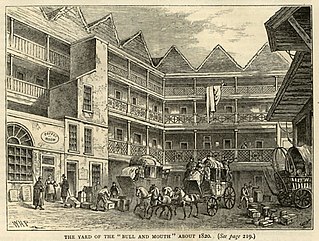William Chaplin may refer to:
- William Chaplin (coach proprietor), British stage coach proprietor and politician
- William L. Chaplin, American abolitionist
- William Robert Chaplin, U.K. government official
William Chaplin may refer to:

The Great Dictator is a 1940 American satirical comedy-drama film written, directed, produced, scored by, and starring British comedian Charlie Chaplin, following the tradition of many of his other films. Having been the only Hollywood filmmaker to continue to make silent films well into the period of sound films, Chaplin made this his first true sound film.

The Circus is a 1928 silent film written, produced, and directed by Charlie Chaplin. The film stars Chaplin, Al Ernest Garcia, Merna Kennedy, Harry Crocker, George Davis and Henry Bergman. The ringmaster of an impoverished circus hires Chaplin's Little Tramp as a clown, but discovers that he can only be funny unintentionally.

Chaplin is a 1992 biographical comedy-drama film about the life of British comedian Charlie Chaplin. It was produced and directed by Richard Attenborough and stars Robert Downey Jr., Marisa Tomei, Dan Aykroyd, Penelope Ann Miller, and Kevin Kline. It also features Charlie Chaplin's own daughter, Geraldine Chaplin, in the role of his mother, Hannah Chaplin.
James or Jim Elliot(t) may refer to:
William Kennedy may refer to:
The name Millward may refer to:

The Kid is a 1921 American silent comedy-drama film written, produced, directed by and starring Charlie Chaplin, and features Jackie Coogan as his foundling baby, adopted son and sidekick. This was Chaplin's first full-length film as a director. It was a huge success, and was the second-highest-grossing film in 1921, behind The Four Horsemen of the Apocalypse. In 2011, The Kid was selected for preservation in the United States National Film Registry by the Library of Congress as being "culturally, historically, or aesthetically significant."
William, Bill or Billy Murphy may refer to:

The Pawnshop was Charlie Chaplin's sixth film for Mutual Film Corporation. Released on October 2, 1916, it stars Chaplin in the role of assistant to the pawnshop owner, played by Henry Bergman. Edna Purviance plays the owner's daughter, while Albert Austin appears as an alarm clock owner who watches Chaplin in dismay as he dismantles the clock; the massive Eric Campbell's character attempts to rob the shop.

Dough and Dynamite is a 1914 American comedy silent film made by Keystone Studios starring Charlie Chaplin.

Caught in a Cabaret is a 1914 short comedy film written and directed by Mabel Normand and starring Normand and Charles Chaplin.

The Star Boarder is a 1914 American short comedy film starring Charlie Chaplin.
The Professor is a 1919 American silent comedy film made at the Chaplin Studios for the First National film company starring Charlie Chaplin. However, the film was never released or even completed. Chaplin abandoned production after finishing only one sequence: a single reel. Chaplin appears not as his usual Tramp character but as "Professor Bosco," a slovenly showman who brings his flea circus with him when staying at a flophouse. The fleas get loose during the night and create havoc.
Hulton may refer to:
Chaplin is a surname of English and French origin and a homonymous surname of Ukrainian and Belarusian origin. Surnames of English and French origin are derived from the occupational name for a clergyman, while Belarusian and Ukrainian uses are derived from chaplya, meaning ‘heron’ or ‘stork’. The surname Chaplin may refer to:
John Chaplin is a former American track and field athlete and coach.
The Palace Theatre (ca.1891-1931) of Boston, Massachusetts was a variety theatre on Court Street in the late 19th and early 20th centuries. Acts which performed there included Rose Hill Folly Co., Clifford & Dixon, Murry & Murry, Behler & Stone, and the Adamless Eden Burlesquers. It also showed photo-plays such as The Exploits of Elaine, The Master Key, and "Charles Chaplin comedies." Among its managers and proprietors were William Austin, F. J. Pilling, George Milbank, and Dunn & Waldron. The Palace occupied the building of the former Nickelodeon. It existed until 1931, when it was demolished.

The Swan with Two Necks was a coaching inn in the City of London that, until the arrival of the railways, was one of the principal departure points for travel to the north of England from London. Its site was given over in the early 1860s to a goods and parcels depot for a firm of railway agents and carriers.

William James Chaplin (1787–1859) was a stage coach proprietor who developed a large coaching business before the arrival of the railways. He has been called "perhaps the greatest coach proprietor that ever lived". His great rival was Edward Sherman.

Edward Sherman was a coach proprietor from Berkshire who became the second largest operator of coaches in England after William Chaplin.